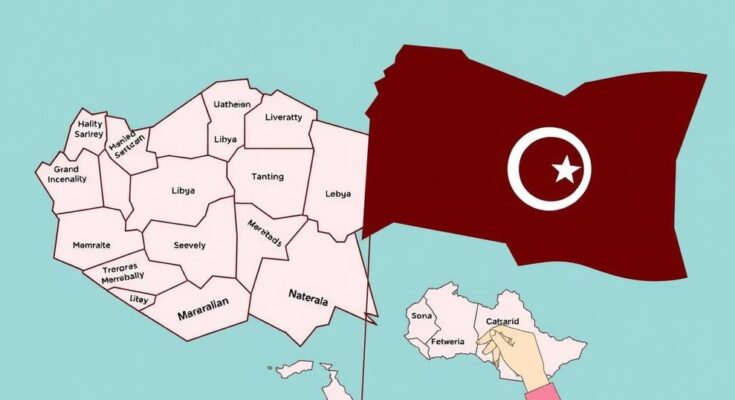The United Nations has proposed a plan for Libya aimed at resolving political stalemate, organizing national elections, and unifying conflicting governments. The plan was presented to the Security Council, highlighting the need to renew legitimacy in Libyan institutions while an advisory committee will assist with electoral issues. However, no specific timeline for the elections has been established, and Libya’s ambassador expressed concerns regarding the lack of clear direction in the political process.
The United Nations has unveiled a comprehensive plan aimed at stabilizing Libya, facilitating elections, and unifying the country’s divergent governments, as communicated by the UN envoy to Libya, Ms. Stephanie Koury, in a briefing to the Security Council on Monday. With a population of 6.8 million, Libya has faced considerable challenges in recovering from the protracted conflict following the 2011 NATO-backed uprising that ousted long-standing leader Muammar Gaddafi. Currently, Libya is split between a UN-recognized government in Tripoli and a rival administration in the eastern region, led by military figure Khalifa Haftar.
Ms. Koury emphasized the UN’s initiative as a means to tackle the existing political impasse, stating, “I presented to the Libyan people the United Nations Support Mission in Libya’s plan for an inclusive, inter-Libyan political initiative.” She projected confidence in this plan, saying it would promote national elections and renew the legitimacy of Libya’s outdated institutions. Furthermore, the UN’s Support Mission in Libya (UNSMIL) intends to form an advisory committee to address electoral concerns ahead of the elections, although no specific date for the elections has been disclosed.
During the Security Council session, Libya’s ambassador, Taher al-Sonni, expressed dissatisfaction with the situation, claiming the international community owes an apology to the Libyan populace. His remarks pointed out the persistent deadlock in the political process and asserted that any obstacles to organizing national elections are rooted in political issues rather than logistical problems. In the aftermath of a ceasefire, a UN-brokered agreement in Geneva aimed to create interim institutions and lay the groundwork for nationwide elections scheduled for December 2021; nevertheless, these elections have been indefinitely postponed due to disagreements regarding the legal framework.
Although some local elections, such as those in Misrata on November 16, 2024, have occurred in the interim, Libya has yet to conduct a national democratic vote. Ms. Koury highlighted the economic difficulties faced by Libya and acknowledged foreign interference while refraining from identifying specific nations. However, she remains optimistic that Libya has the potential to emerge as a “beacon of stability and prosperity for the Mediterranean region and beyond.” The UN intends to facilitate a dialogue focusing on establishing a unified national vision for the future of Libya.
Libya has been mired in turmoil since the overthrow of Gaddafi in 2011, leading to a prolonged civil war and divisions within its governance structure. The country is currently split between two primary authorities: a government recognized by the United Nations based in Tripoli and a rival group in the east supported by military commander Khalifa Haftar. Despite efforts to broker peace and establish a democratic system, including planned elections, political disagreements have stalled progress. The UN’s new initiative seeks to address existing obstacles, unify the country’s leaders, and promote stability ahead of potential elections.
In summary, the UN has proposed a strategic plan to assist Libya in overcoming its persistent political deadlock, advocate for national elections, and unify its competing governments. Despite past challenges and delays in the electoral process, the proposed advisory committee and the UN’s commitment to facilitate dialogue present a prospective pathway towards stabilization. The international community’s support remains crucial to securing a brighter and more unified future for Libya.
Original Source: www.al-monitor.com




